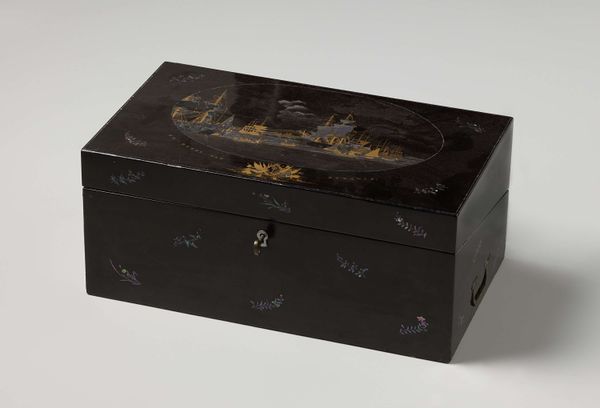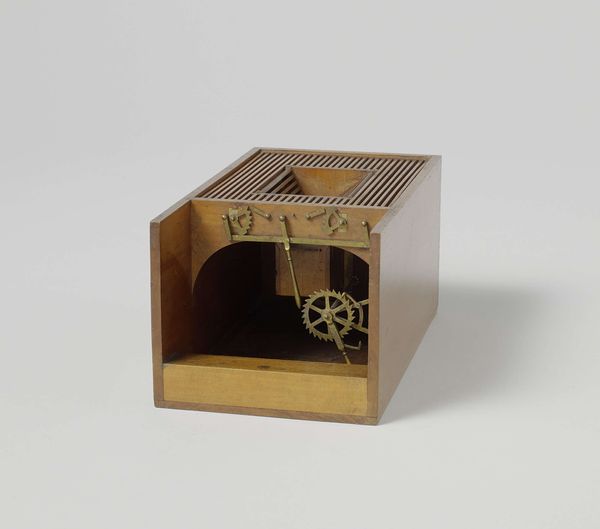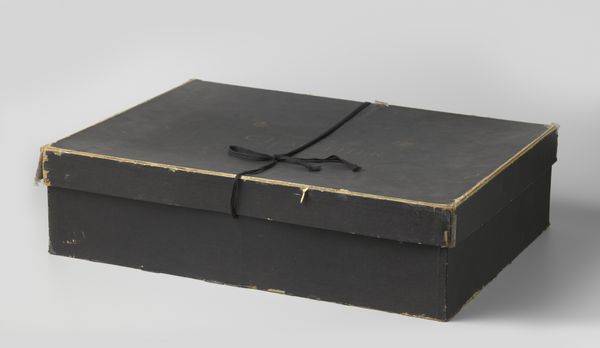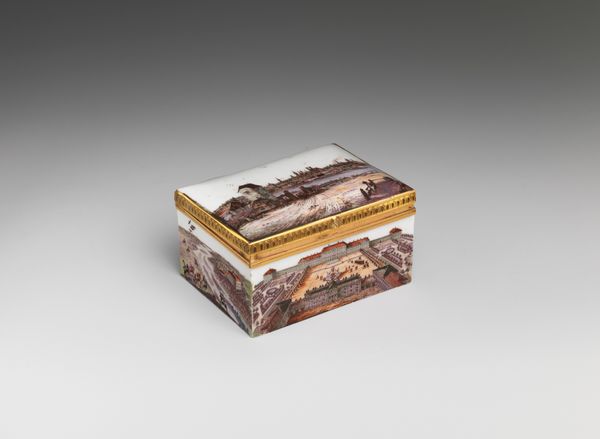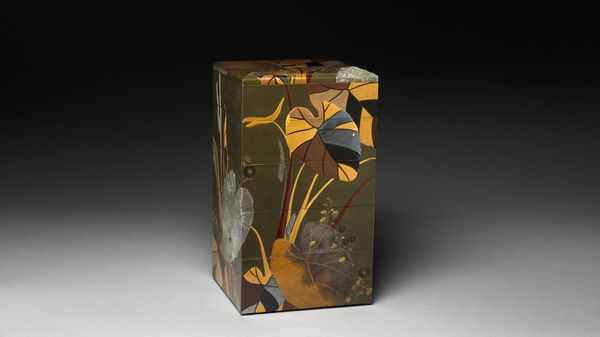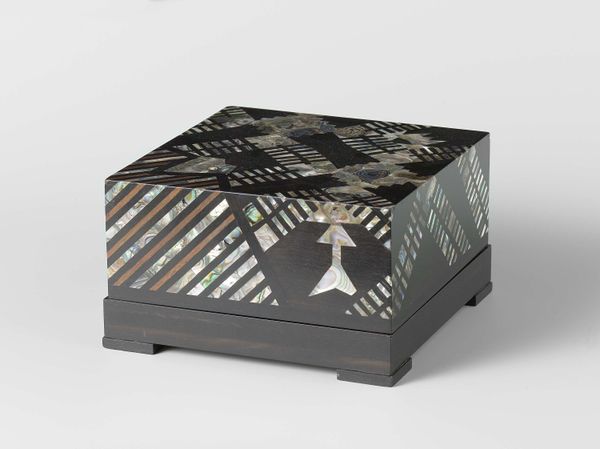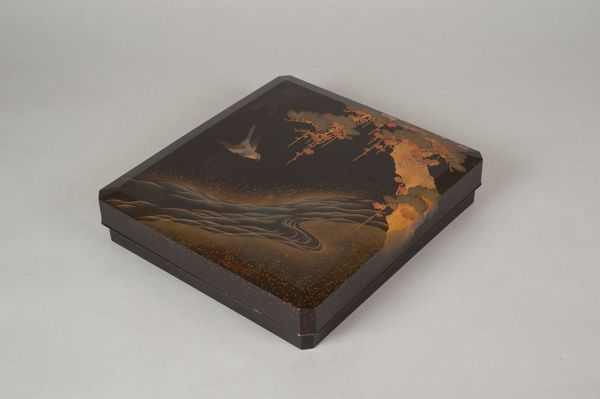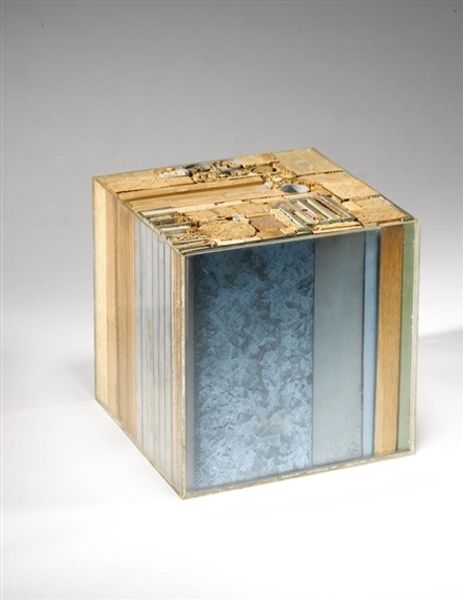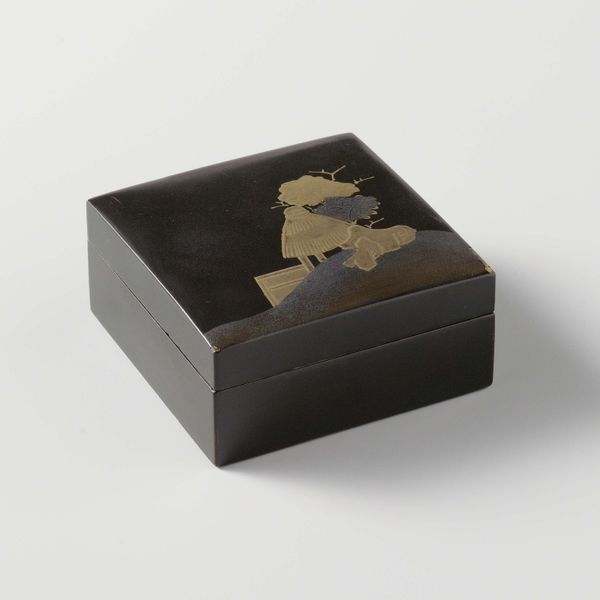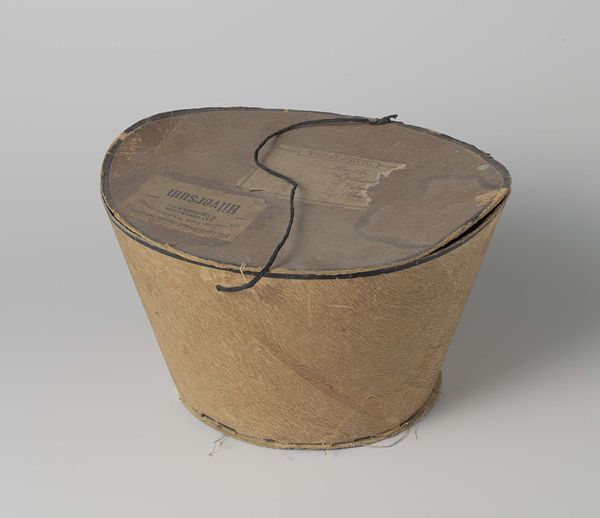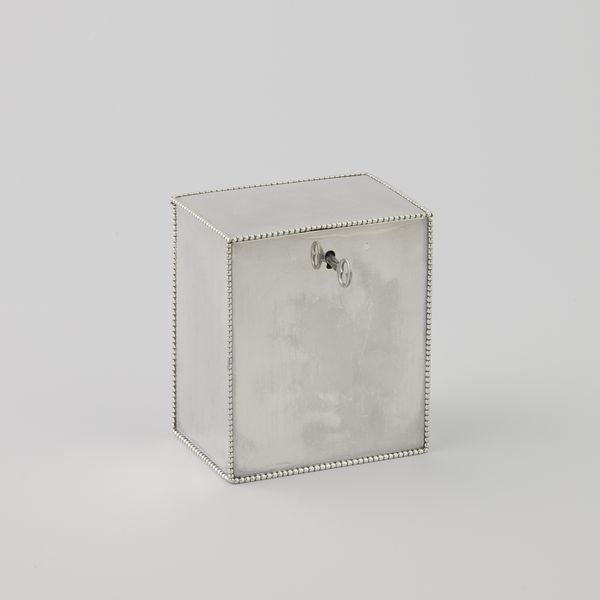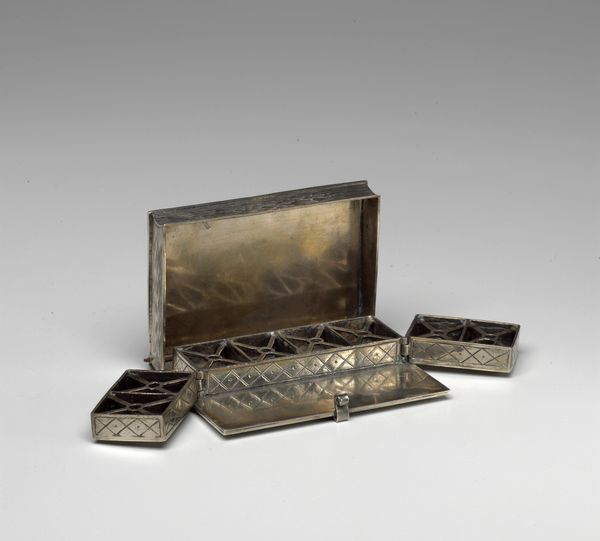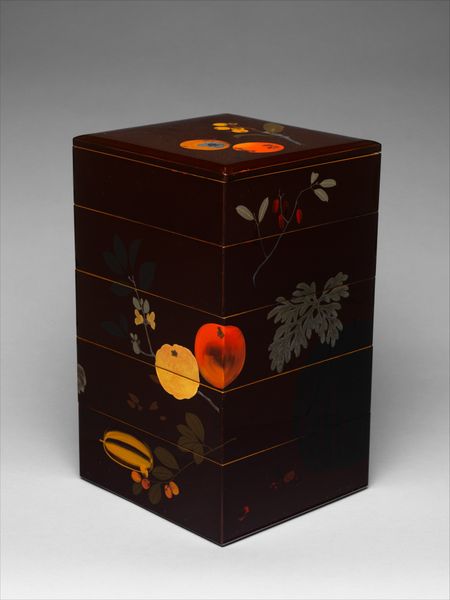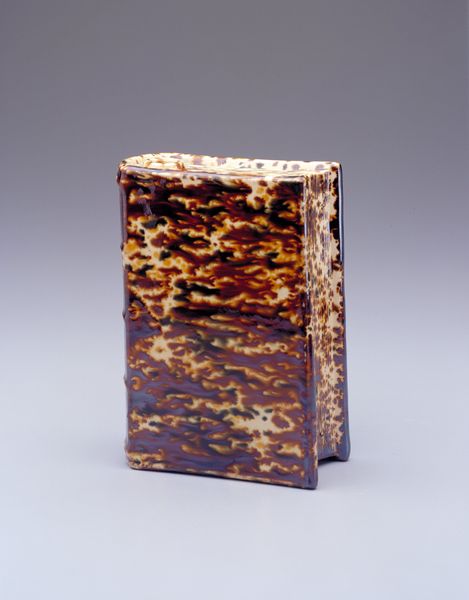
Tiered Box (Jūbako) with Design of Boats and Plovers 1850 - 1899
0:00
0:00
mixed-media
#
boat
#
mixed-media
#
asian-art
#
bird
#
japan
#
24_meiji-period-1868-1912
#
decorative-art
Dimensions: L. 9 5/8 in. (24.4 cm); W. 9 3/8 in. (23.8 cm); H. 16 1/2 in. (41.9 cm)
Copyright: Public Domain
This is a tiered box, or Jūbako, with a design of boats and plovers, made by Shibata Zeshin in nineteenth-century Japan. It's crafted using lacquer, a traditional material. The box is not just a container; it's a canvas reflecting Japan’s intricate relationship with nature and its evolving social landscape. The motifs of boats and plovers aren’t accidental; they represent cultural symbols deeply embedded in Japanese society. The plovers, for instance, are associated with autumn and symbolize resilience in the face of change. But who was this box made for, and what does that tell us about the society of the time? Was it commissioned by the new merchant class, eager to display their wealth, or the old aristocracy clinging to tradition? To understand this Jūbako, we must consider the historical context: Japan's transformation during the Meiji Restoration, when the country opened to the West and experienced rapid modernization. By examining records and archives, we can appreciate the complex interplay of social, economic, and political forces that shaped this artwork.
Comments
No comments
Be the first to comment and join the conversation on the ultimate creative platform.
